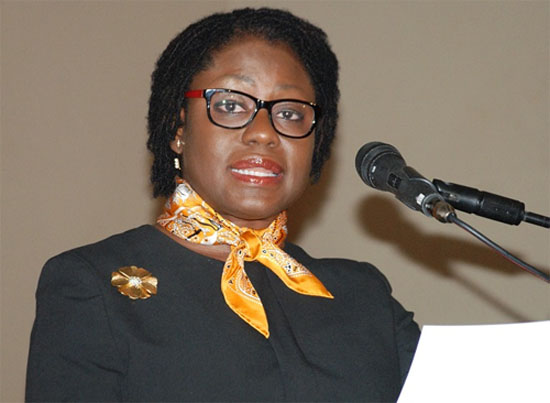The second Deputy Governor of Bank of Ghana, Mrs. Elsie Addo Awadzi, has said that the gender-inclusive finance agenda is now more critical than ever before, and a coordinated effort is required to accelerate action going forward.
According to her, “making real progress will require bold action to address the underlying pre-existing vulnerabilities that have only been exacerbated by the current pandemic., so that we rebuild a more inclusive, sustainable, and resilient future.
“Promoting gender-inclusive finance is somehow inextricably linked to addressing the many underlying socio-economic and cultural issues that create inequalities for women in the job market and in business (formal or informal). Policies are needed to empower women economically by addressing issues affecting work-life balance, employment and income disparities, land ownership, inheritance, education, healthcare, child care, and elder care, among others”.
She said this whilst giving the closing remarks in Accra on Monday September 14, 2020 at a webinar co-hosted by the Alliance for Financial Inclusion (AFI) and Bank of Ghana on Integrating Gender Considerations into Covid-19 Policy Solutions.
The plenary sessions and breakout group discussions, according to her, effectively addressed issues pertaining to the five key pillars of: Women, Regulation, and Regulatory Institutions; Women’s Participation in Business and in the Job Market; Women and Social Protection; Women and Access to Financial Services including DFS; and Women and Consumer Protection.
“The experiences that have been shared through today’s discussions confirm that the pandemic has disproportionately affected women, pushing them out of both formal and informal employment and business, and in some cases from the financial system, further widening the gender gap in access to finance.
“In many countries, COVID-related restrictions came at a higher price for women than for men, given that more women tend to be involved in informal, temporary, or part-time work, or in informal business partly due to the domestic responsibilities they disproportionately shoulder. What is more, the pre-existing gender gap in access to finance has meant that many women adversely impacted by the pandemic have little or no savings to cushion them and have no access to credit or grants to save their businesses from collapse”.
She explained that, this phenomenon is not limited to the developing world and that advanced economies are also grappling with the distributional consequences of the pandemic. She cited a recent IMF Working Paper that found evidence that women in Japan were more negatively impacted by the pandemic due to disparities in the labor market and the fact that more women than men had to drop out of the job market to take care of their children amidst massive disruptions to childcare and schools.
However, she indicated that, in the case of emerging and developing economies, these disproportionate impacts on women are bound to be worse, given the weak social protections that exist.
“Our discussions today have also revealed that with the exception of a few countries in the AFI Network, many policy and regulatory responses to the pandemic have not considered gender-specific dynamics of the economic fallout from the pandemic, and in that respect may not have helped to avoid a widening of the gender gap in access to finance”, she remarked.
She added that “AFI intends to develop a policy summary note from this webinar building on the just published COVID-19 GIF Policy paper, which will be shared with AFI members. This will be very helpful for guiding members’ efforts going forward, as we work towards inclusive, sustainable, and resilient economic recovery in our various jurisdictions”.























